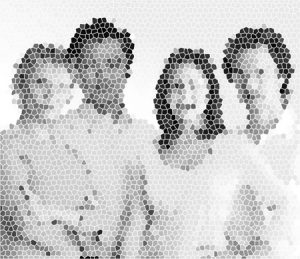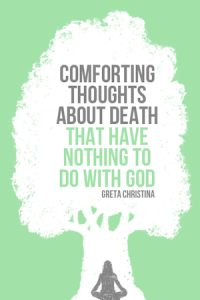 A constant for those of us on the left is our “rage against the machine” vibe. When it comes to the power of government or the rights of the individual, we’re totally tuned in to those individual rights.
A constant for those of us on the left is our “rage against the machine” vibe. When it comes to the power of government or the rights of the individual, we’re totally tuned in to those individual rights.
When a story floats across our attention about a kid sent home from school for wearing “inappropriate clothing” — a provocative blouse, for instance, or a t-shirt with a comically dirty picture on it — we’re right there swinging, often screaming that the teacher should be fired, or the principal should be fired, for assaulting the fragile psyche of each of these embattled children.
Yet it’s rare for me to leap to spitting hate at teachers and school administrators when I hear these stories. For one thing, I feel strongly that the purpose of school is education, and everything else should come second. The deal is: You come to school and pay attention and we’ll hand you the keys to life. But the deal is also: You’re required to act in such a way that you don’t distract the other kids trying to absorb those keys, and don’t make it harder for the teachers — who already have a damned difficult job — trying to impart them.
You have a RIGHT to education. But you have a DUTY to not interfere with others’ enjoyment of that right.
Too often, it seems to me, in our avid clamor for our rights in society, we miss the point that we also have these attached duties. We on the left forget that waaaay too often. We scream and leap rather than take a moment to think, deeply and thoroughly, about each issue as it arises.
One of the hazards of that sort of reaction is that we’re easily manipulated. On issue after issue, our knee-jerk scream reaction makes us easy marks for clever opponents. I watched this happen when I was a political activist: Developers in my small town would present this plan for a vast, elaborate development with all sorts of environment-destroying bells and whistles. We would predictably scream and leap, writing letters to the paper, speaking up angrily in city council meetings, drawing up petitions for people to sign. And the developer would back down! But he would back down to his real, original plan, which was to build condos in a delicate meadow and major viewshed area of the town.
If he’d proposed that real plan in the beginning, we would have worked against that, and maybe blocked the development entirely. But because he tossed out the equivalent of radar-foiling chaff, we saw only the chaff and missed the bombers coming through. At the end, we sighed with pride at our efforts. Sure the condos got built in that delicate meadow but, by god, we stopped him from building the touristy blacksmith shop along that one delicate creek.
I saw it time after time, enough to finally realize that the developers KNEW US. They knew what we’d do. We’d go for the red cape — EVERY TIME — and miss the fact that there was a bullfighter behind it with a killing sword.
I came to understand there was something like a bull session where the developer would get his whole crew in and say “Okay, kids, here’s the plan. Now let’s add on some bait for the idiots, stuff we know they’ll hate, so they can fight that while we get the main project approved. Come on, what can we put in here? Let’s have some ideas, the goofier the better!”
We won and won and won the small battles, but lost and lost and lost the big ones.
We on the left are suckers for an obvious pitch. Time after time, we’ll leap for the shiny lure and miss the fact that there’s a fisherman on the other end of the line.
So: France.
They’ve been catching holy hell for the recent ban on burkinis on some French beaches, which was even more recently overturned. The online community practically burned up the Internet with outrage at that hideous transgression onto individual liberty and the misogynistic assault on women. FRENCH POLICE FORCE WOMAN TO REMOVE BURKINI!!!
Meanwhile, over in that bastion of women’s rights (and Islam), Saudi Arabia, women are forbidden to drive cars, or try on clothing in stores. Forbidden to wear body-defining clothing or makeup that “enhances beauty.” Forbidden to open a bank account without their husband’s permission. Forbidden to go for a swim, compete in sports, or interact with men while out and about. FORBIDDEN TO APPEAR IN PUBLIC WITHOUT A MALE ESCORT.
Hell, I saw stories saying women in Saudi Arabia were forbidden to buy Barbie dolls, or visit cemeteries!
So you’d expect an equal or greater amount of outrage over all that, right? I mean, considering the horrified reaction with France? Because, hey, talk about assaults on individual liberty and pure-dee misogyny!
I mean, dayyum — Saudi women LIVE UNDER HOUSE ARREST for their entire lives. Just because they’re women.
Our reaction? … Crickets.
To be fair, I’ve seen plenty of stories in the atheist community about Islam-the-religion. We oppose it as avidly as we oppose Christianity. But when it comes to Islamic culture, which contains Islam-the-religion as an inseparable foundational element, we seem fairly blind to it. Too many of us have even adopted the word “Islamophobia” — which seems to be defined as “blind hatred for poor, innocent Muslims” — and used it to flail at everyone in sight, passionately defending both Muslims and Islam with the same cannonade.
Something we’re almost not permitted to say on the Left is that some cultures are superior to others. Considering its treatment and subjugation of women, I consider Islam — as practiced in predominantly Islamic countries — to be an inferior culture. Anyplace that forces women to walk around in burkhas, to cover themselves head to foot, aside from anything else, that’s UGLY. Any country or culture that confines women (hell, anybody!) to their homes — with the right to leave dependent on having a MAN, and only a close relative at that — is a culture that should not qualify as even minimally acceptable to the modern world.
Yes, I’m sure there are plenty of women there who are happy with their burkhas (cough*StockholmSyndrome*cough), who would defend to the death the wearing of the burkha. But in my view, some things are an offense against freedom and equality themselves, against womanhood itself. The burkha is one of those things.
In France, it’s currently estimated that 5 to 10 percent of French residents are now Muslims, with a full 25 percent of French teens being Islamic. The Muslim population is growing, and most French citizens can clearly see the coming radical demographic and cultural shift.
If you focus only on the rights of poor, embattled women to wear burkinis on the beach, you’d have to conclude the French are horrible and hateful and even racist. The idea! Sending armed thugs to force a poor little woman to remove her burkini! My god, what is the world coming to?
But if you see the bigger picture of an invasive — and inferior — culture using such controversies as manipulative bait to win more and more of the cultural ground, things look a bit different.
In that bigger picture, France is trying to preserve French culture.
Do they have that right? I mean, if it means this poor, poor woman has to face public humiliation?
I have to say they do. Hell, I think they have the DUTY to push back with everything they’ve got.
Not because they want to hurt this one innocent woman, but because they want to protect the rights of ALL French women, the freedom of ALL women to move confidently and freely through the cities and towns of France, indefinitely into the future, against a real trend toward Islamic majority that would — will! — diminish those rights and freedoms.
The lure to gain our knee-jerk reaction of sympathy and support is the picture of this one poor woman. Thanks to us, Islam wins another public relations battle.
But meanwhile, something hidden, something bigger, goes on.
—————————————-
Postscript 1: Oh, that brutal murder of the Charlie Hebdo staff by an Islamist? No, no, that was one lone individual. A total aberration. Islam is the Religion of Peace™.
Postscript 2: Aside from individual rights, the Koran is pretty clear that alcohol is satanic. What happens to the French wine industry — third largest in the world — when Islam becomes the dominant culture? Hey, probably they’ll just switch over to Prophet Muhammad Wine, right? Riiiight.








